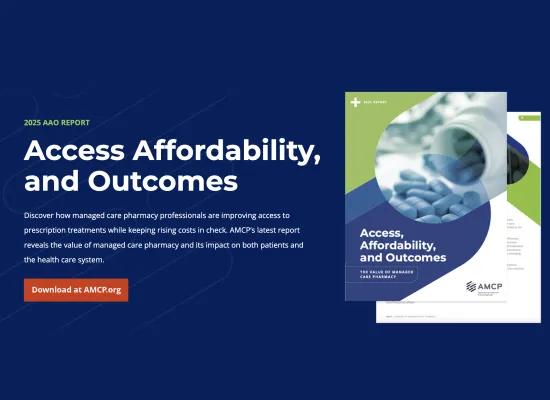
'America's Pipeline Conundrum: Paying for Cures' Panel Examines Gene Therapy Reimbursement Challenges
Grapevine, Texas, Oct. 19, 2017 /PRNewswire-USNewswire/ -- Four leading health care experts are generally optimistic that the U.S. will successfully address one of the fiercest challenges facing the health care system: paying for often spectacular, but high-cost gene and other curative therapies. Panelists in the discussion, "America's Pipeline Conundrum: Paying for Cures," also noted that managed care pharmacy has a key role to play in the solution.
The discussion was featured at Tuesday general session of the Academy of Managed Care Pharmacy's fall conference, AMCP Nexus 2017: Changing the Way We Pay for Health Care, taking place Oct. 16-19 in Grapevine, Texas, outside of Dallas.
"AMCP is proud to be at the forefront of innovative efforts to reexamine how we pay for health care," said AMCP CEO Susan A. Cantrell, RPh, CAE. "Managed care pharmacy professionals will be at the frontlines of finding sustainable ways to pay for curative therapies."
Panelist Steve Miller, MD, Senior Vice President & Chief Medical Officer at Express Scripts, cited historical precedent as a guide. "I'm a kidney transplant doctor. We had these same discussions about transplants 30 years ago. Transplant was really expensive…And we figured out how to do it."
J.D. Kleinke, economist fellow of the American Enterprise Institute, added, "This is a good problem to have. We're talking about curing. It's very important not to lose perspective on that. Eventually, the system will figure it out…The system will bump and grind its way toward an equilibrium," like it has done with past discoveries, such as HIV medicines.
Robert Dubois, MD, PhD, Chief Science Officer and Executive Vice President, National Pharmaceutical Council, said "I have to fight tooth and nail to spend the $475,000 to save a kid…who will live another 60 or 70 years. I don't think society is going to have a problem with that. And if we cure a lot of people that is what investing in health is all about…I do have a problem with very high drug costs where the incremental benefit is tiny. And I do think we're going to move towards a system that is value based."
Jane F. Barlow, MD, MBA, MPH, Senior Advisor, MIT New Drug Development Paradigms Initiative project on Financing of Curative Therapies in the U.S., urged Nexus attendees to not get bogged down in trying to implement the "perfect" solution. "Let's start thinking about real world tests for this and go out and try some things," she said. "Reinsurance and stop-loss insurance is a big part of this, and may be part of the solution around broader risk pools. I do think we have to think more broadly than we have in the past about insurance. And challenge some of the paradigms."
Miller added, "I think the people in this room are key to this. It's managing these therapies that's going to be crucial. We have a product that requires management, so you're only using it in the most appropriate way, and you're getting the full bang for your dollar. It's a much more robust solution. We are going to be able to pay for these. Americans do want these. But we're going to have to get a lot smarter."
Dubois of NPC agreed, stating "You are the right people. You understand the clinical issues. You understand the pharmaceutical perspective… The only way out of this box is for you to think much broader than the drug. You have to think about how we're going to capture the value as an employer or as a government."
In addition to the panel discussion, AMCP Nexus 2017 featured more than 30 educational sessions in five tracks, including Drugs, Diseases and the Managed Care Impact; Legislative and Regulatory Trends: From Rhetoric to Practice; Managed Care Research in Action; and Specialty Pharmacy Management: Keeping Up with Runaway Innovation.
AMCP Nexus 2017 takes place Oct. 16-19 at the Gaylord Texan Hotel & Convention Center in Grapevine, Texas.
Featured News & Resources
See Full CalendarAward Applications Open
AMCP eLearning Day: Nexus Encore
AMCP 2026 Registration Opens
Upcoming Events
AMCP offers a wide variety of educational opportunities, from events and webinars to online training.







